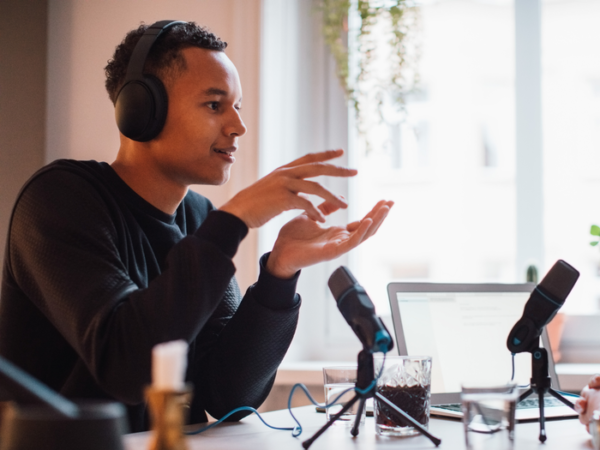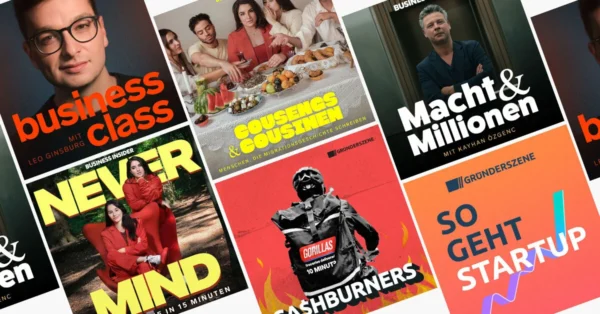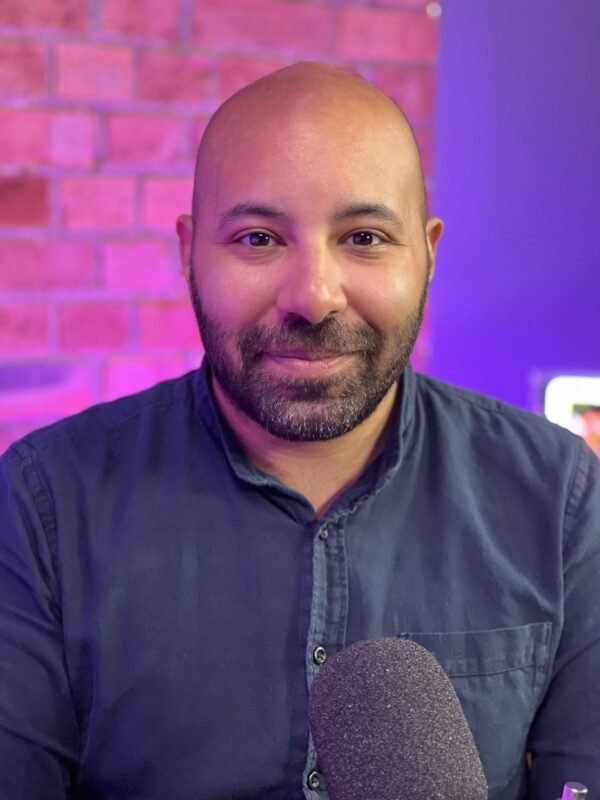
Have Podcasts Had Their Day?

Podcasts have been big for a while. And you may be considering creating your own podcast as part of your business’s marketing strategy. But you may be wondering if the podcasting bubble is about to burst.
The good news
The podcast market is still growing, with new listeners discovering the medium every day. Over 21 million people in the UK regularly listen to podcasts, representing roughly 40% of adults. The numbers are also good elsewhere in the world.
A major reason for podcasts remaining relevant is their convenience. Unlike live radio or TV, podcasts can be downloaded and listened to at any time, giving listeners the freedom to consume content on their own schedule. This is especially appealing to busy professionals and commuters who want to stay informed and entertained while on the go.
People also really value the diversity of content available through podcasts. From true crime to comedy, politics to pop culture, there is a podcast for every interest and niche. This has allowed podcast creators to build dedicated audiences around specific topics, which has, in turn, driven the growth of the medium as a whole.
And podcasting is growing into new markets and formats. Many podcasts are now available in multiple languages, allowing creators to reach audiences of millions around the world. Additionally, podcasts are increasingly being adapted into other forms of media, such as TV shows and movies, further expanding their reach and impact.
The bad news
If podcasting is a broad church, it’s those occupying the pews at the front and at the back that need to worry. At one extreme we have big-name, highly polished productions, and at the other, episodes being produced on phones. If you are minded to create a podcast, you want to be somewhere in the middle.
As was the case for podcasting, the increased demand for fresh content during COVID lockdowns benefitted video streamers, such as Netflix, Disney Plus and Amazon Prime Video. These and other services had already been in fierce competition for subscribers which then intensified after 2020. At the time, subscribers (not viewing figures) were their currency, and to boost their numbers, a lot of money was spent commissioning fresh content to attract new subscribers.
Many large companies in the business of podcasting publishing (such as Spotify) followed this playbook. But it hasn’t quite worked out as well as they’d hoped, and budgets are being cut or projects are being cancelled. For those at the big-money end of podcasting, it feels like the bubble has burst.
And for those clinging to a shoestring model, don’t expect huge audiences. Perhaps if your content is compelling enough, some listeners will be forgiving, but most podcast fans look for high production values, including clear, crisp audio, professional editing, and engaging storytelling. There are more podcasts available than ever before, offering listeners an overwhelming amount of choice. As such, podcasts now need to have higher-quality content and production values in order to stand out in a crowded market. This has forced podcast creators to up their game, investing in better equipment, software, and editing tools. Basically, you can’t really get way with sounding like an amateur.
How Podcasts are Evolving

Podcasts began as audio only, but increasingly, video is becoming important. If you’re washing dishes, mucking out a stable, or making your way back from the school run, audio is what you want. But a significant number of podcast fans (currently about 13% but growing constantly) prefer to watch as well as listen.
This can be a challenge for many podcasters, but the effort is often rewarded. Not only does video generate more content for more platforms, but it also provides more ways for people to find and engage with the content. YouTube videos rank higher than audio podcasts on search results. And other platforms—like Spotify and Apple Music—have recognised the popularity of video content and added video for podcast functionality.
Video also makes the content more accessible on social media. While it is hard to engage potential listeners on Facebook or Instagram with audio-only content, video can grab attention and hold it for longer.
Creating a Successful Podcast
If you are interested in creating a podcast, there are several key steps you can take to ensure its success.
1. Find your niche
2. Develop high-quality content
3. Understand your audience
4. Invest in production values
5. Market your podcast
Summary
Despite their maturity, podcasts have most certainly not had their day. With over 21 million regular listeners and a growing market, podcasts remain a relevant and engaging medium for entertainment, education, and storytelling.
However, the medium is evolving in response to changing listener expectations and market dynamics, so it’s important to stay up to date with the latest trends and best practices to create a successful podcast.
ABOUT THE AUTHOR:
Maz Farsani is co-founder of Outset Studio which provides full-service podcast and video production studios in London and Manchester. Outset specialises in pod- and vlog- casts, live streams and live shopping. The team works collaboratively with the client to make high-quality content that attracts an audience and increases engagement. Recording can be done at their studios in London and Manchester, or on location. Whether a client simply wants studio space or would prefer someone to manage the full production, Outset’s experienced teams have it covered.

Web: www.outsetstudio.com












































